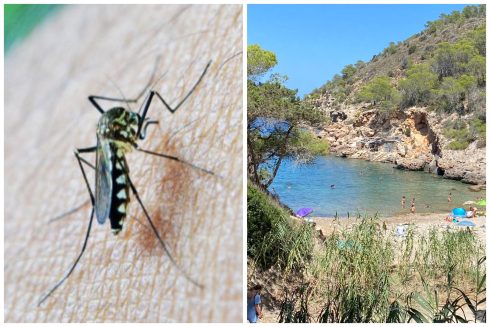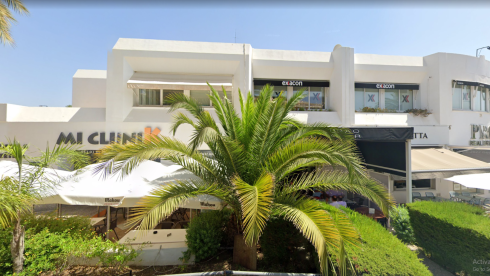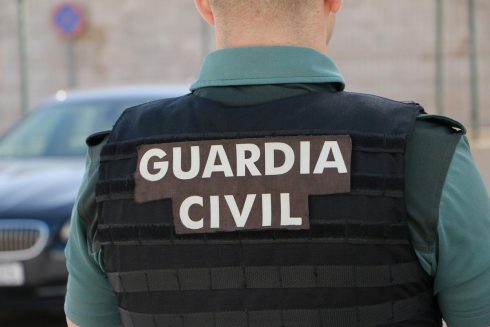By Michael Coy
SO you’ve taken the plunge and moved the family – lock, stock and tabby cat – to southern Spain. It’s a brave move, but one important question you are going to need to address is the children’s education.
It’s all too easy, as you are establishing yourself in this sunny new environment to cruise along in holiday mode – but at some point, the kids have to have schooling. And, like anything, in a new country, there are plenty of important things to consider before you pack them off for their first day in a foreign school.
It hardly needs pointing out that the school you choose will depend on a number of key variables: distance from your home, academic standards and, above all, budgets.
The simplest option is to enrol the children at the local Spanish state school. This has two obvious advantages – the kids will pick up Spanish effortlessly, and (not to be sneezed at) the schooling comes free of charge.
However, there are potential pitfalls here. If you have a child who is particularly shy or sensitive, the noisy maelstrom which is Spanish schools may prove rather daunting.
What is more, one hears grim stories of some Costa secondary schools where the “guiris” (the Spaniards pejorative name for us) are ignored by the teachers and left entirely untutored.
This is not a problem at primary level where, on the whole, the integration of foreign children is managed with skill and consideration, but youngsters in the eleven-plus age group can find themselves abandoned by the teaching staff.
If you opt against the Spanish state system, either because you fear the educational standards will be low (according to reports Andalucia does indeed come well below average) or because you prefer to have your children educated in English, then you will have no choice but to go private.
The IB is a more rounded education than the English equivalent
Over the years, more than a score of English schools and colleges have sprung up along the costas.
They range from the high-end luxurious to the basic, with fees to match.
Each has its own particular flavour and parents should choose carefully which one is the most appropriate for their child.
As one might expect, Marbella is richly supplied with independent educational establishments.
At the top of the range (with top-of-the-range fees, to boot!) comes the English International School, situated right next to the N-340.
Its top facilities reflect the expectations of its well-heeled clientele and the school even has its own state-of-the-art recording studio, and publishes a magazine each year to celebrate the achievements of its high-flying students.
It is a college which demands excellence, and year in, year out, it produces a crop of high achievers.
Also located in Marbella is Aloha international college, which provides courses in GCSE and A-levels, as well as the International Baccalaureate.
This might be a good place to mention the ‘IB’, which may be unknown to some English readers. The ‘IB’ is the normal route to university for European students, and broadly corresponds to A-levels, except that the IB course involves seven subjects, rather than the three usually required at A-level.
There are also elements of community work and public speaking, making the IB a more rounded education than the English equivalent.
One of the longest-running schools (celebrating its 40th anniversary this year) Swan’s is a two-site school (one in Sierra Blanca, the other in Urb Capricho) which now takes pupils from
pre-nursery age right up to A-level. Named after its legendary head mistress and founder, Tessa Swan, it is stickler for school uniform and discipline in general.
The school also boasts a full-time professional nurse as part of the teaching staff, and its cooked meals (all home-made recipes) are regarded with deep nostalgia by former pupils.
It is now also making a particular point of providing the IB certificate in English these days.
Downtown Marbella is home to the British School, a rather lavish primary school which has recently been remodelled and re-equipped.
Just up the road in San Pedro, you will find the excellent Laude International College, where English GCSE and A-level courses are taught.
The school is also an exam centre, so when your youngsters need to sit their examinations, they can do so at their ‘home’ site.
Money was lavished on facilities in a major refit three years ago, and extra-curricular activities such as sports are a major aspect of the school’s life. For some, though, the establishment’s reputation for rigid discipline may be off-putting.
Another place in San Pedro is Calpe, the English-language primary school, which is well-liked for its caring ethos.
Nearby, in Benahavis you will find Mayfair, which is something of an alternative to the usual diet of A-levels and International Baccalaureate.
Once an academy with a so-so reputation, it has in recent years transformed itself. The college’s speciality is sports education: it offers qualifications such as coaching badges and full personal fitness instructor accreditation, and has superb facilities.
The upmarket Sotogrande International School is a fully-accredited boarding- and day-school, set in an impressive campus surrounded by woods and golf courses.
The school now offers the IB. And it has a particular focus on the Arts with students encouraged to express themselves through visual art, music and drama.
In Calahonda you will find St. Anthony’s and the European Sixth-Form College, both small schools catering for the 16-18 year-old age group, and both with rather limited campus space and facilities.
Next up is Benalmádena International College, a co-ed school, founded in 1997, providing the British curriculum for students up to 18 years old, and offering GCSE’s and A levels.
Probably most famous as the Madrid school which David Beckham’s children attended while he played for Real Madrid, St George’s School also has a well established arm in Malaga, as well as Roquetas de Mar, in Almeria and near Sevilla. It has an excellent reputation and offers the British National Curriculum.
Further East is the Almunecar International School. Founded in 1989, and owned by a consortium of parents, it is an independent, co-ed day school. It offers the British curriculum but there is also a focus on extra curricular activities, including the three year Duke of Edinburgh, International Award scheme.
Beware of hidden fees – some take the Ryanair approach to lightening your wallet
There are also a number of private Spanish Schools along the coast that should not be forgotten. These are fee-paying schools that generally offer the Spanish national curriculum but are held in higher regard than the average state school. Most of the schools also teach English, but it can vary from one hour a week to five so do check.
One of the best is the San Jose College in Estepona. Very highly talked of, the school has high academic standards.
Also worth a mention is Alboran College in Marbella, which offers the IB for children from 3 to 18. Setting it apart from state schools it boasts many facilities including a swimming pool, football pitch, basketball courts and even a farm school and stables.
In addition, this category also includes the so called Opus Dei schools, which have a firm basis in religion but boast an impressive academic record.
One such school is the Sierra Blanca girls’ school in Malaga, while in Marbella there is the El Romerol School for boys, both set up in 1972. There are other Opus Dei schools in Jerez and Sevilla.
Finally, a last word should go to uniforms and fees. Some establishments are extremely keen on uniform for both winter and summer, while others are more relaxed.
Beware of these hidden fees as some seem to take the Ryanair approach to lightening your
wallet… advertising a very reasonable price, then trebling it by means of hidden extras such as signing-on fees and text-book charges.
Before signing anything, you are advised to ask, “Is this all I have to pay?”
But ultimately, at its best, an English-language education has a great deal going for it.
Your youngsters can progress through the system, well-equipped for moving on to higher education in the UK (or here in Spain), with the added advantages of having acquired an extra language and having something a bit different to offer when in due course they show up for their university interviews. With a little careful thought, you should have no trouble selecting the ideal establishment for your children.
Remember – you’re paying for it, so choose wisely! You know you can do better, as your old report used to say.
Michael Coy is a lawyer and journalist who taught A-level subjects on the Costa del Sol for four years.








Excellent. Thanks.